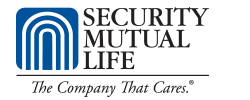Avoiding a Fake Charity
Episode 260 – This being the holiday season, many of us have turned some of our attention to charitable gifts. The IRS has recently published some guidelines to help spot the difference between a real and a fake charity.
Transcript of Podcast Episode 260
Hello this is Bill Rainaldi, with another edition of Security Mutual’s SML Planning Minute. In today’s episode: Avoiding a Fake Charity.
This being the holiday season, many of us have turned some of our attention to what should be an easy decision: Making a charitable gift. And with so many recent tragedies and natural disasters, there is an increased incentive to give whatever we can as soon as we can. But how do we figure out the best recipient for our generosity?
The best advice may be to let the giver beware. According to the IRS, “When fake charities scam unsuspecting donors, the proceeds don’t go to those who need the help and those contributing to these fake charities can’t deduct their donations on their tax return.” And keep in mind that scammers follow the news, too, and some have already tried to exploit the recent crisis in the Middle East.[1]
So, how do you distinguish real charities from fakes? In October, the IRS published some guidelines that may be useful. Among other things, they recommend using their “Tax-Exempt Organization Search,” or TEOS tool, which can be found on IRS.gov.[2]
The tool allows you to verify the legitimacy of a charity you may be considering, make sure they can receive tax-deductible contributions, and gives you access to information about the organization’s tax-exempt status and filings.
They also provide some useful tips on how to protect yourself from fake charities. Those suggestions include:
- Verify before making any donation. Charitable scammers sometimes take a page out of their phishing brethren’s playbook and use a name that sounds like a better-known charity, only with a slight variation that you might miss, such as “Say No 2 Cancer.”[3] This is an attempt to confuse you. You should ask for the exact name of the charity, their website, and physical mailing address and then independently confirm this information.
- Don’t be pressured into making an immediate payment. One tactic scammers often use is to pressure you into making an immediate payment. While there are always things like a year-end push, or a limited time matching donation, legitimate charitable organizations are happy to get donations at any time. If you feel rushed, it may be an ominous sign.
- Don’t provide more information than needed. Keep in mind that a professional scammer is looking for more than just money; they also want your personal information. The IRS recommends that you should treat your personal information like cash and be careful who you hand it out to.
- Pay attention to how a donation is requested. The IRS suggests that you should never work with charities that ask for donations through gift cards or by wiring money. In their words, “That’s a scam.” The safest way to pay is by credit card or check, and only after you have verified that the particular charity is, in fact, real.
The Federal Trade Commission recently added some of their own ideas, among them: Donate to charities you know and trust that have a proven track record; research the organization online by searching the name plus things like “complaint”, “review”, “rating”, or “scam,”; and be cautious about giving to individuals on crowdfunding sites.[1]
Doing good isn’t as easy as it used to be, and it’s unfortunate that we have to do extra homework just to make sure we’re not getting scammed. That is an unfortunate reality we face in today’s environment.
[1] Federal Trade Commission Consumer Advice. “Safely donating in response to the Israel-Gaza crisis.” consumer.ftc.gov https://consumer.ftc.gov/consumer-alerts/2023/10/safely-donating-response-israel-gaza-crisis (accessed Nov. 13, 2023)
[2] Internal Revenue Service. “IRS: Beware of fake charities; check before donating.” Irs.gov https://www.irs.gov/newsroom/irs-beware-of-fake-charities-check-before-donating (accessed Nov. 13, 2023)
[3] Philanthropic People. “A Comprehensive List of 35 Fake Charities.” Philanthropicpeople.com https://philanthropicpeople.com/2016/09/20/35-fake-charities/ (accessed Nov. 13, 2023)
This podcast is brought to you by Security Mutual Life Insurance Company of New York, The Company That Cares®. The content provided is intended for educational and informational purposes only. Information is provided in good faith. However, the Company makes no representation or warranty of any kind regarding the accuracy, reliability, or completeness of the information.
The information presented is designed to provide general information regarding the subject matter covered. It is not to serve as legal, tax or other financial advice related to individual situations, because each individual’s legal, tax and financial situation is different. Specific advice needs to be tailored to your situation. Therefore, please consult with your own attorney, tax professional and/or other advisors regarding your specific situation.
To help reach your goals, you need a skilled professional by your side. Contact your local Security Mutual life insurance advisor today. As part of the planning process, he or she will coordinate with your other advisors as needed to help you achieve your financial goals and objectives. For more information, visit us at SMLNY.com/SMLPodcast. If you’ve enjoyed this podcast, tell your friends about it. And be sure to give us a five-star review. And check us out on LinkedIn, YouTube and Twitter. Thanks for listening, and we’ll talk to you next time.
The applicability of any strategy discussed is dependent upon the particular facts and circumstances. Results may vary, and products and services discussed may not be appropriate for all situations. Each person’s needs, objectives and financial circumstances are different, and must be reviewed and analyzed independently. We encourage individuals to seek personalized advice from a qualified Security Mutual life insurance advisor regarding their personal needs, objectives, and financial circumstances. Insurance products are issued by Security Mutual Life Insurance Company of New York, Binghamton, New York. Product availability and features may vary by state.
